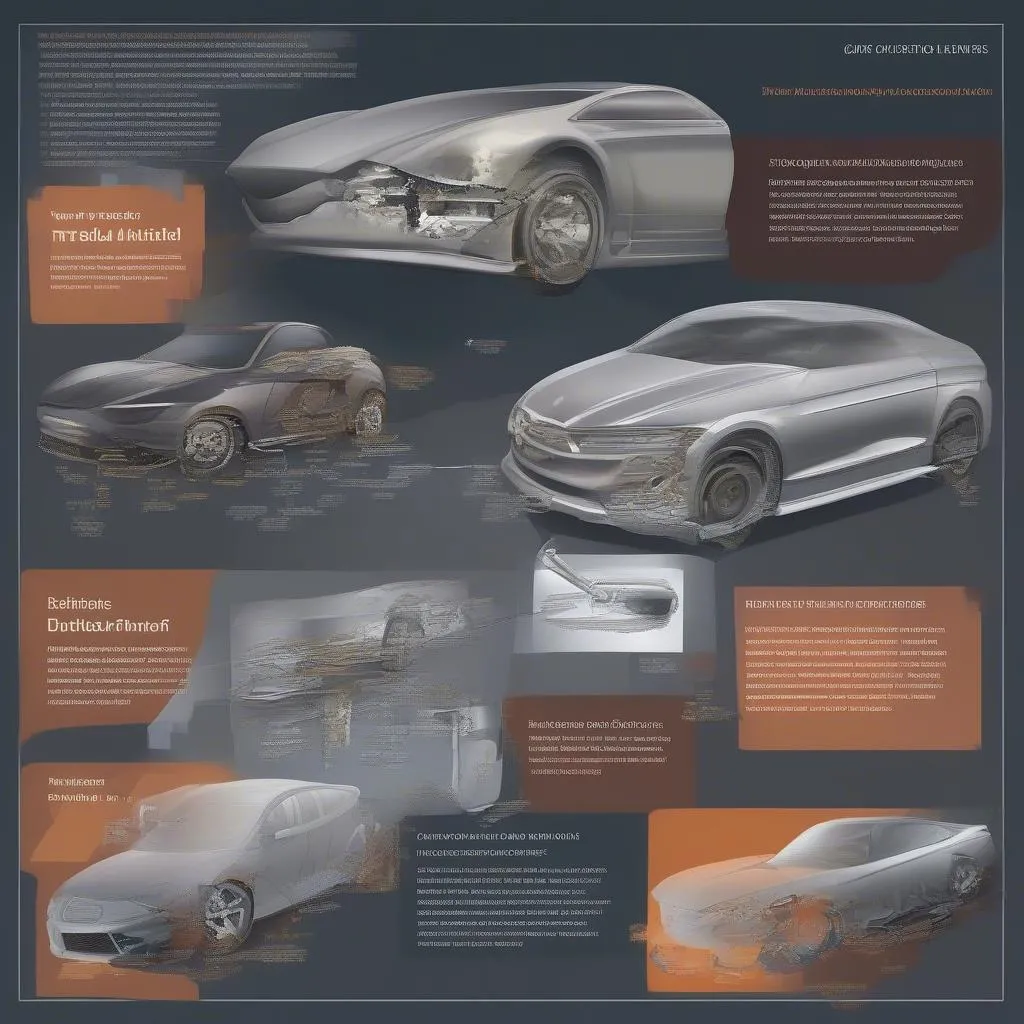Have you ever wondered what makes your car so sturdy and reliable? You might be surprised to learn that a significant part of its strength comes from its metal body. Metal Car bodies are a common sight on the roads today, and they play a crucial role in ensuring our safety and providing a comfortable ride. But how does metal contribute to a car’s functionality, and what are the different types of metal used in car manufacturing? Let’s delve deeper into the fascinating world of metal car bodies.
Understanding the Importance of Metal in Car Bodies
The Role of Metal in Car Construction
Metal is the backbone of car construction, providing the necessary structural integrity and durability. Its use in car bodies can be attributed to several key factors:
- Strength and Durability: Metal, especially steel, is renowned for its strength and ability to withstand impact. It provides a robust frame, protecting occupants from collisions and external forces.
- Corrosion Resistance: Metal car bodies are often coated with protective layers to prevent rust and corrosion, ensuring the longevity of the vehicle.
- Flexibility and Moldability: Metal can be easily molded and shaped into complex forms, making it ideal for constructing the intricate designs of modern vehicles.
- Cost-Effectiveness: Metal is a relatively inexpensive material compared to other options, contributing to the affordability of cars for the masses.
The Evolution of Metal Car Bodies
Metal car bodies have evolved significantly over the years. Early cars were primarily made of simple sheet metal, but advancements in metallurgy and manufacturing processes have led to the use of more sophisticated alloys and techniques.
- Steel: Traditional steel remains a mainstay in car construction. It offers excellent strength-to-weight ratio, making it ideal for building strong yet lightweight frames.
- Aluminum: Aluminum has gained popularity in recent years due to its lightweight properties and high corrosion resistance. It’s often used in specific components like hoods, doors, and wheels.
- High-Strength Steel: This advanced type of steel offers superior strength and impact resistance, allowing manufacturers to create lighter car bodies without compromising safety.
- Carbon Fiber: Although not strictly a metal, carbon fiber is increasingly used in high-end vehicles for its incredible strength and lightweight characteristics.
Common Questions About Metal Car Bodies
1. Are metal car bodies prone to rust?
Yes, metal car bodies can rust if they are not properly protected. Rust occurs when iron in the metal reacts with oxygen and water. To prevent rust, manufacturers apply protective coatings like galvanization and paint.
2. What are the benefits of using aluminum in car bodies?
Aluminum offers several advantages over steel:
- Lightweight: Aluminum is significantly lighter than steel, contributing to improved fuel efficiency and handling.
- Corrosion Resistance: Aluminum is naturally resistant to rust, reducing maintenance costs and extending the lifespan of the vehicle.
- Recyclable: Aluminum is easily recyclable, promoting sustainability in the automotive industry.
3. Are metal car bodies recyclable?
Absolutely! Metal car bodies are highly recyclable, and recycling them conserves natural resources and reduces pollution.
Beyond the Basics: Exploring the Metal Car World
1. Exploring Different Metal Treatments and Coatings
 Metal Car Body Treatments and Coatings: A Comprehensive Guide
Metal Car Body Treatments and Coatings: A Comprehensive Guide
2. Discovering Metal Car Art
Metal car sculptures and installations are gaining popularity as a form of contemporary art. These pieces often incorporate recycled car parts, giving new life to discarded materials.
3. Building Your Own Metal Car
For enthusiasts who love to tinker and create, building a custom metal car is a rewarding experience. There are various metal car building kits available, allowing you to design and construct your own unique vehicle.
Further Reading and Resources
For a more comprehensive understanding of metal car bodies, explore these resources:
- Metal Car Building Kits: Discover a wide range of metal car building kits for enthusiasts of all levels.
- Car Sheet Metal: Learn about the different types of sheet metal used in car manufacturing and their properties.
- Car Paint Metallic Colors: Explore the world of metallic car paint colors, from classic silver to bold gold.
Contact Us for Expert Advice
If you’re interested in learning more about metal car bodies or need assistance with a specific car issue, don’t hesitate to contact us! Our team of experienced automotive specialists is available 24/7 to answer your questions and provide guidance. Reach out to us on WhatsApp: +84767531508.
Let’s keep the wheels turning!